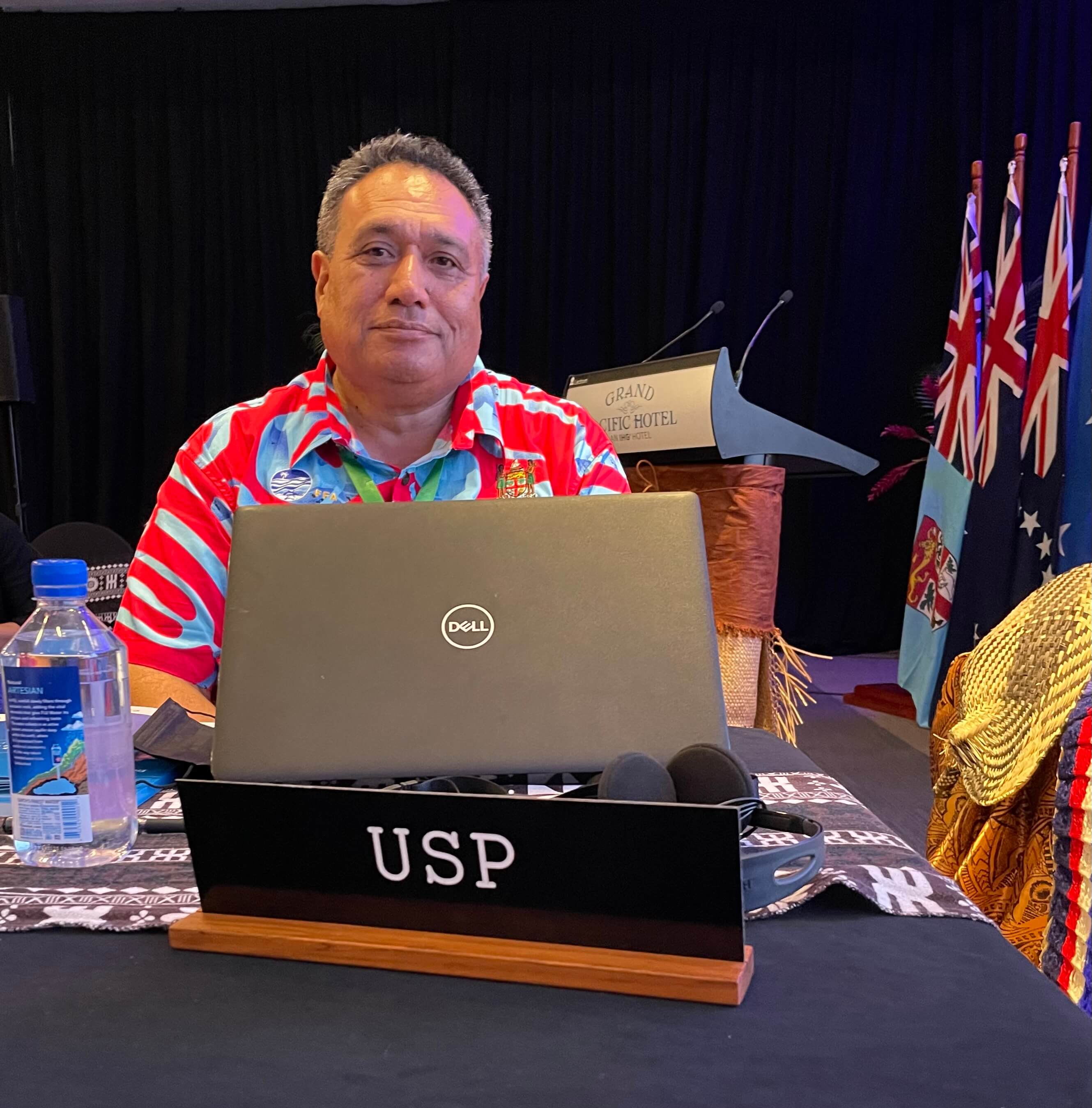Related News

The University of the South Pacific (USP) made significant contributions towards the Council of Regional Organisations of the Pacific (CROP) Heads Dialogue.
This was done through the three panellist members from the Secretariat of the Pacific Community (SPC), the Secretariat of the Pacific Regional Environment Programme (SPREP) and the Pacific Islands Forum Fisheries Agency (FFA).
USP was represented by Deputy Vice-Chancellor and Vice-President (Regional Campuses and Global Engagement) Dr Giulio Masasso Tu’ikolongahau Pāunga, Director Pacific Centre for Environment & Sustainable Development (PaCE-SD) Professor Elisabeth Holland and Development Manager, Iresh Lal.
The CROP Heads Dialogue held from 11-14 July on the fringes of the Pacific Islands Forum Leaders Meeting discussed ways in which organisations could ensure the 2050 Strategy strengthened Pacific regionalism delivering a step-change for our islands and people considering the regional and international context.
The Secretary-General and Chair of CROP Henry Puna thanked all CROP agencies for the important role they played in supporting Members’ development of the 2050 Strategy, noting it was a stronger, more encompassing Strategy because of the role played by the CROP agencies.
He said the hard work of delivering on that Strategy would soon commence, and CROP had a central role to play in achieving that.
Puna added that to fully achieve the vision and values of the 2050 Strategy – that of strengthening regionalism, inclusivity, shared commitment and regional cooperation – CROP needed to work as One CROP for One Blue Pacific.
USP noted that enhancing the capacities of Pacific people through education and training could lead to the change needed for development. For instance, working in close collaboration with community leaders, youth, women and girls, persons with special abilities and other vulnerable and diverse groups would ensure they are not only engaged but able to take ownership of the results enabling greater sustainability of outcomes.
The University also highlighted the importance of ensuring that the development agenda was not driven solely by the need for funding support, but that development partners and CROP agencies were willing and able to work in correlation to address the diverse socio-economic and environmental needs of the region.
USP also reflected on the seven themes of the 2050 Strategy, which include political leadership and regionalism, people-centred development, climate change, ocean and environment as well as technology and connectivity.
USP stressed the need for greater levels of coordination and consultation between all stakeholders in ensuring a cohesive and robust support mechanism for the region that would guarantee the effective delivery of the 2050 Strategy for the Member States.
It added that better planning and coordination would facilitate effective and efficient use of financial and technical resources. This coordination could be achieved through annual planning and review meetings amongst the management of CROP agencies, UN agencies and key development partners.
Throughout the meeting, USP received strong support from the Pacific Leaders, CROP agencies, and Non State Actors. The Honorable Fiame Mata’afu, Samoa’s Prime Minister and former USP pro-chancellor, highlighted USP as a model of a successful regional organization devoted to building the capacity of the Pacific needed to meet the demands of the moment and the 2050 Strategy for the Blue Pacific Continent.